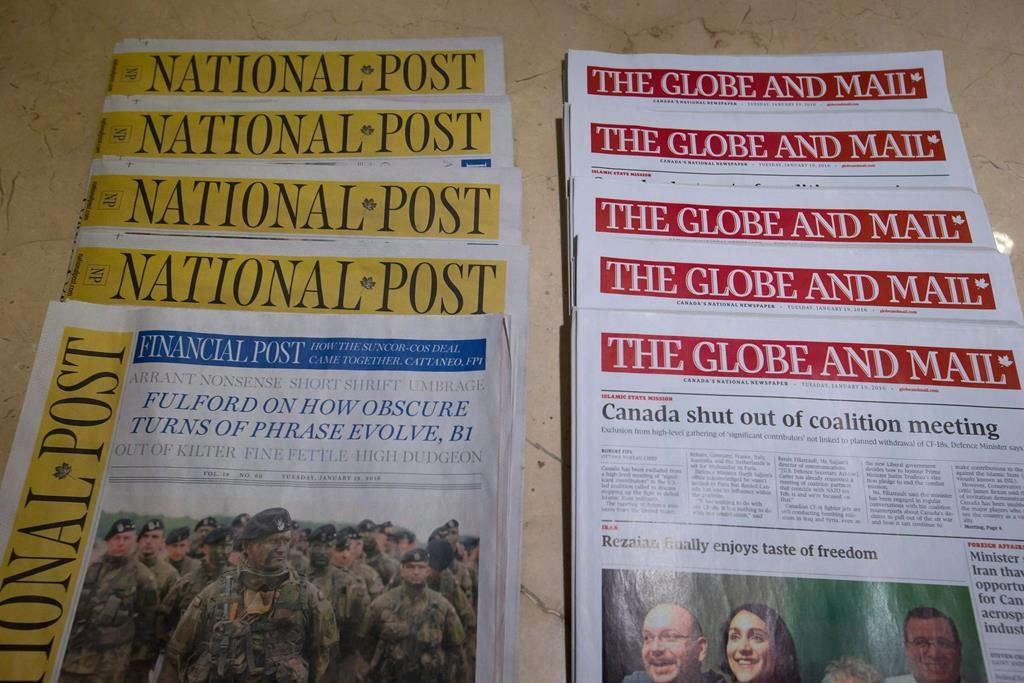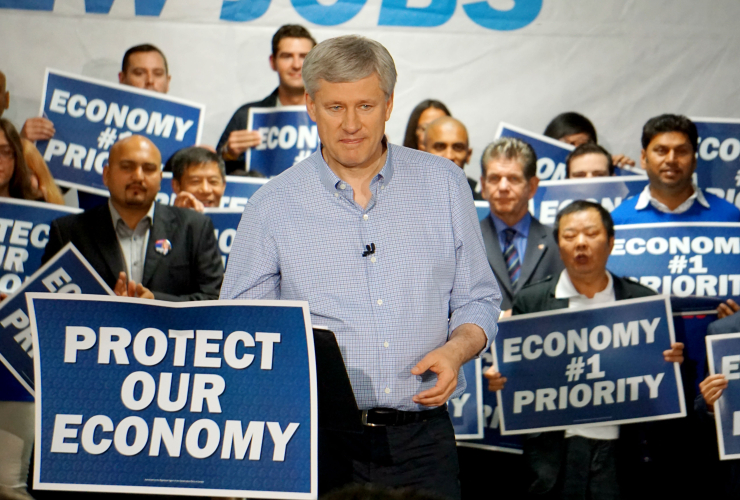The federal Liberal government has enlisted the independent Public Policy Forum to assess the state of Canada's struggling news industry as it mulls over potential policy options.
A rash of newspaper closures and newsroom layoffs this past winter, combined with a looming debt bomb for Postmedia Network Canada Corp., Canada's largest newspaper chain, has added a sense of urgency to a decade-long disruption of the journalism that Heritage Minister Melanie Joly's office says "plays a central role in a healthy democracy."
The Commons heritage committee has already begun hearings on how Canadians, and particularly local communities, are being served "through news, broadcasting, digital and print media," according to a February committee motion.
But specific government policy prescriptions for the digital news age are not within the expertise of the federal public service. Nor, for that matter, are they something any government wants to be seen imposing — or offering up — to the journalists and organizations who report on it.
"It's a sensitive area of policy making," Ed Greenspon, the president of the Public Policy Forum and former Globe and Mail editor and reporter, told The Canadian Press in an interview.
"We're not, if you will, hired by the government. But we're doing this in co-operation with the government."
Joly was unavailable over several days for an interview on the policy study but her office offered up a statement confirming the Public Policy Forum's mandate.
"Journalism plays a central role in a healthy democracy, from holding governments accountable to providing a platform for citizen engagement," spokesman Pierre-Olivier Herbert said in an email.
"We acknowledge that newspapers are facing industry-wide challenges as they adapt to changing technology, demographics, audience preferences and competition for advertising dollars."
The government, he added, has "contracted the Public Policy Forum to provide an analysis of recent changes in the Canadian newspaper industry and identify policy options."

Greenspon said he'll begin the first of six roundtables starting next week, where invited experts will debate the state of play and share ideas for potential government action. The forum will also hire pollsters to research how Canadians view the news media and its role in democratic society. They'll wrap things up with a final symposium next fall.
The project was spawned in January after the Guelph Mercury and Nanaimo Daily News closed their doors after more than a century of publishing, Postmedia announced another big round of newsroom layoffs, Rogers announced layoffs and the Toronto Star closed its printing plant.
For an industry that's seen a decade of incremental retreats, it was a brutal month.
The simple problem for most news media is that advertising no longer pays the cost of producing journalism. Digital ad rates are a fraction of old newspaper ad rates, and platforms like Google and Facebook have become dominant in attracting ad dollars while producing no journalism themselves.
That's become a major flashpoint in Europe, where Google has been battling copyright lawsuits from beleaguered news organizations for years.
In Canada, government policy-making for the news industry is not unprecedented. A 1965 income tax section, for example, treats advertisers in Canadian-owned media differently than advertisers in foreign-owned media coming into Canada, to the benefit of Canadian-owned media.
There have been royal commissions and major government studies on the news media, and a generation ago today's mass concentration of media ownership would have been considered a national scandal.
It's all grist for the mill.
The roundtables will gather together people who are already deeply immersed in grappling with these issues. Now, with an apparently "ready audience among policy-makers," says Greenspon, there is an opportunity to put some ideas into action.
He's hesitant, at the beginning of the review process, to state any policy preferences but he does reveal his reporter's bias.
"One of the challenges we have is the way the media landscape is evolving — there's more and more people processing and commenting on news that we already know about, and fewer and fewer hunters and gatherers of the news. That can't be a good thing," said Greenspon.
"We need to make sure there's still hunting and gathering going on."
Torstar Corp., the owner of the Toronto Star, Canada's largest daily newspaper by circulation, holds an investment in The Canadian Press as part of a joint agreement with a subsidiary of the Globe and Mail and the parent company of Montreal's La Presse.
Five things to know about Canada's news media industry under public policy review
- The independent Public Policy Forum review revolves around three questions: Does the deteriorating state of traditional media put at risk the civic function of journalism and thus the health of democracy? If so, are new digitally based news media filling the gap? If not, is there a role for public policy to help maintain a healthy flow of news and information, and how could it be done least intrusively?
- Many western countries are struggling with the same issues, and significant legal and public policy battles have taken place in Germany, France and Britain, among others. U.S. copyright law allows up to 300 words to be copied online without paying the publisher or author but many European jurisdictions are still battling this out.
- Postmedia bought out Quebecor's 175 English-language newspaper holdings in late 2014 for $316 million to create a newspaper empire that essentially controlled all but a handful of the country's English dailies. Postmedia laid off 90 newsroom staff at various publications in January this year as it consolidated operations under a heavy debt load. But a looming debt restructuring has credit ratings agency Moodys downgrading Postmedia, while the company says it remains committed to cutting another $80 million in costs by mid-2017. "That poses another imperative to have figured things out a bit" by next year, says Ed Greenspon of the Public Policy Forum.
- In 2013, Google agreed to pay 60 million euros ($86 million Cdn) to help boost the Internet presence of French newspapers, who had been locked in a legal dispute with Google over copyright. Similar disputes continue, and Germany has its own word for ancillary copyright law that was passed in 2013: Leistungsschutzrecht. This February, Google won a legal fight with some 40 German publishers over its right to publish snippets of articles, without payment, in things like Google Search. Also in February, Google announced the winners of its 150 million euro ($216 million Cdn) Digital News Initiative fund in collaboration with 160 European news publishers.
- Last month, the public British Broadcasting Corporation agreed to a $15-million Cdn deal to pay for 150 local reporters employed by local news organizations to cover municipal politics and provide their reports, including video and audio, to all local news media websites. "They will enhance local journalism, ensure greater accountability of people in public life and enable BBC audiences and newspaper readers to get better coverage of what's really happening in their communities," said the BBC's director of news and current affairs.
The Canadian Press
They could begin by fixing
They could begin by fixing the CBC and making it free from political interference. Postmedia is not Canadian owned and has such a conservative bias that it should be allowed to die its natural death thus allowing media like the National Observer to flourish. On line media like the Tyee, and ipolitics are where I go for real information now.





Comments